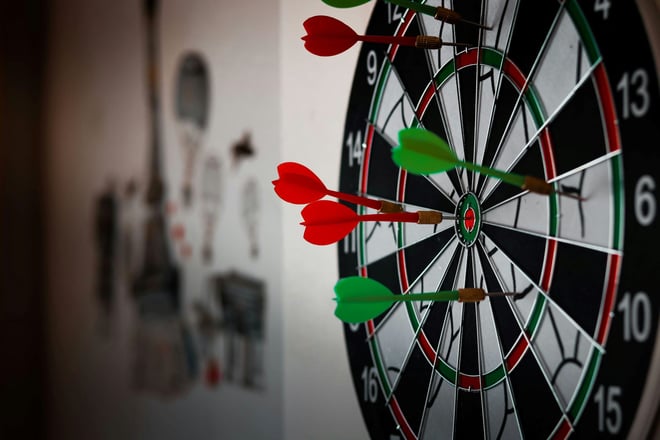You're on a Zoom call with your other colleague and the client that you're building a website for. At one point, your colleague says that the “bounce rate on landing page A is 25% lower than the bounce rate on landing page B.” You're confused for a moment, because you know that's not true. You checked right before the meeting and the bounce rate of page A is actually only 5% lower.
What do you do? Do you correct your colleague, quite possibly embarrassing them in the process, or do you wait until after the meeting? We've all been in situations like these. It's not easy to know when and how you should correct someone who's wrong. But it's not impossible either. Here are 6 ways to make correcting someone politely much easier.
Not Everything is Worth Correcting
Before you correct someone, ask yourself if it's worth correcting the mistake in the first place. Some mistakes are simply too small to warrant a correction. In the above example, it's probably not worth correcting your colleague during the meeting because, whether it's 5% or 25%, page A still has a better bounce rate than page B.
Don't be a stickler for the rules and don't expect full perfection all the time. Instead, correct the mistakes that are dangerous and big, the ones that can derail a project if not fixed, or the ones that will help a person's career when corrected.
Correct With Evidence, Not Your Opinion
There are always multiple paths to a goal and people have different ways of doing things. Some of those ways, you might not agree with. You might think that this framework is better than the other, that this piece of code should be written like so and so, that this type of software should be used to containerize the development environment, etc.
But if you don't have hard evidence to back up why people should do something your way, you're just offering your opinion. You should not expect the other person to change their ways and you certainly shouldn't try to make it seem as if your way is better simply because it's how you do it.
On the flipside, if you can objectively show why something is better done this way instead of that way, your correction will go down much easier with the other person, particularly if you offer it in an empathetic way.
Don't Embarrass the Other Person
Embarrassment is a social phenomenon. We feel embarrassed when we believe our social image has been undermined and when we think others are forming negative opinions of us.
That's why it's almost always better to correct someone in private. Really try to avoid doing it in front of other people, because they might feel attacked and might respond defensively, the last thing you want.
The ideal scenario is to correct someone before they've made the mistake. If we know our colleague believes the bounce rate of page A is 25% lower than the bounce rate of page B, but the meeting hasn't started yet, correct them before it starts. Chances are they'll be grateful you did so.
It's the Way You Say It
Just like with giving feedback, when you correct someone it's often more about the way you say it than about the content of your message. You can use the sandwich technique, for example, where you start with a positive message, correct the other person (the meat of the sandwich), and finish off with a positive message again.
This being said, different cultures have different preferences. Some cultures consider it rude to bluntly correct someone, while others prefer you cut to the chase right away. Still, when you work with a global team, it's better to err on the safe side and soften the blow as much as possible.
You don't want to come across as authoritative, because you're no supernatural being either. You've made mistakes and your knowledge isn't necessarily superior to other people's. Adopt a helpful attitude: you're correcting someone to help them.
Correct Someone With Questions
Sometimes, instead of plainly telling someone they're wrong, it's worth asking questions to understand how they came to their particular conclusion. It's the Socratic method, if you will, where you ask probing questions to understand their thought process.
Doing so might help you understand where exactly they went wrong or, even better, it can show that you might have been the one making the mistake. If you think being corrected is unpleasant, correcting someone who's telling the truth when you're wrong is arguably much worse.
Be Open to Stand Corrected
Finally, what you do to other people can happen to you as well. Be open to other people correcting your mistakes. Regardless of how they do it, even if they do it with animosity, someone correcting your mistake is helpful. It's valuable feedback that you can use to stop making that mistake.
If you feel defensive or attacked when someone is correcting you, suppress that feeling. Don't take it out on the other person. It's always better to suffer in silence for a while until you've calmed down and can see things with a clear mind. The other person probably didn't mean any harm. It's much more likely they had your best interests at heart.
These were six ways you can politely correct someone who's wrong. To summarize:
- Not everything is worth correcting
- Correct with evidence, not your opinion
- Don't embarrass the other person
- It's the way you say it
- Correct someone with questions
- Be open to stand corrected yourself



